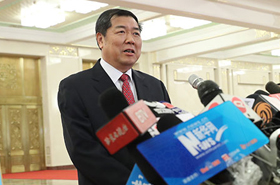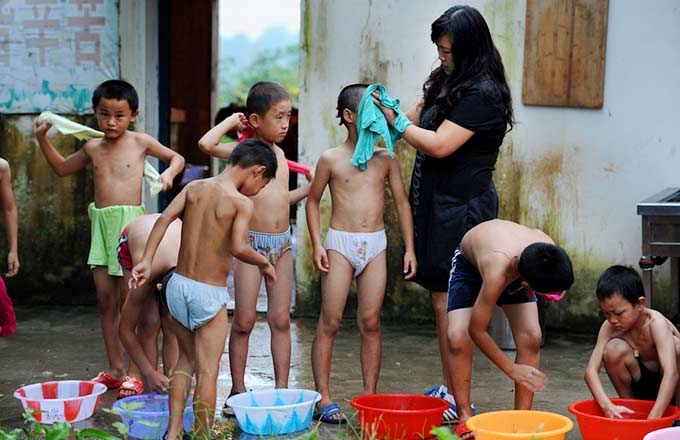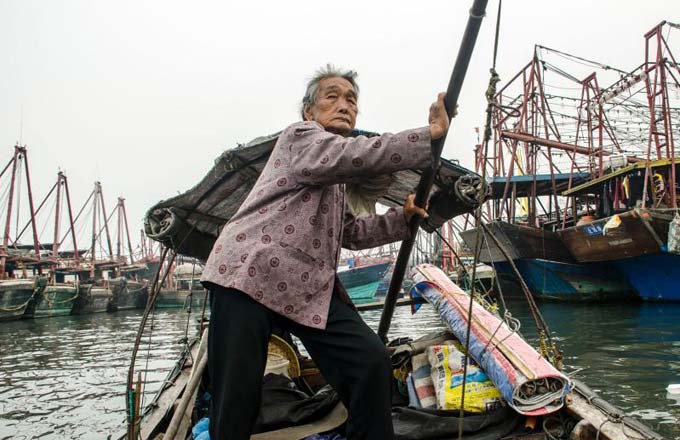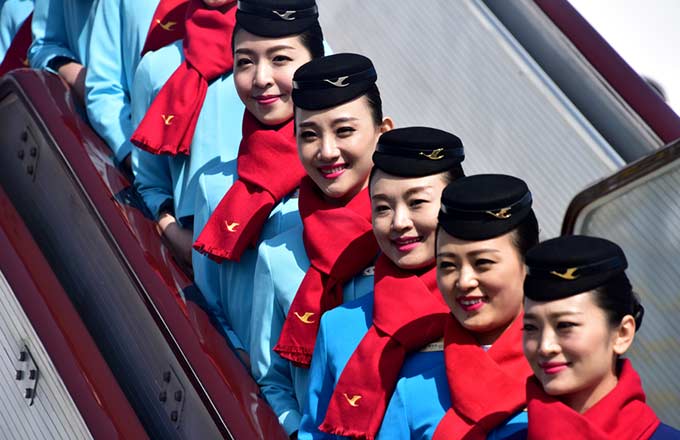Law marks reform of Red Cross Society
The revised Red Cross Society Law will serve as a milestone for the reform and development of the Red Cross Society of China and promote the society's participation in humanitarian work, according to Wang Rupeng, vice-president of the RCSC.
The law, which will take effect on May 8, World Red Cross and Red Crescent Day, includes major amendments to the current law, such as expanding the duty of the RCSC by allowing it to participate in and promote body and organ donation, Wang said.
"The amendments serve to ensure the RCSC performs its duty in accordance with the law and improves its credibility among the public," he said.
The law was approved by the Standing Committee of the National People's Congress, China's top legislature, on Feb 24. It is the first revision to the current law since it was adopted in 1993.
Major amendments include setting up a supervision board at the RCSC to improve supervision of the organization; expanding the RCSC's official duties to participating in and promoting voluntary blood donation, and body and organ donation; and intensifying auditing of donations received by the Red Cross, according to Wang.
It also includes a new chapter that specifies legal responsibilities on law violations concerning the work of the RCSC, he added.
China's Red Cross societies or their staff members may face criminal sanctions for violations such as handling donations without donors' permission or failing to give feedback to donors about the use of their donations, according to the new chapter.
Other organizations or individuals may also face criminal sanctions for offenses such as infringement of the symbols or names of the Red Cross, damaging property of Red Cross societies, producing, publishing or spreading false information that damages the reputation of Red Cross societies, or hindering staff members of Red Cross societies from performing rescue and relief duties, according to the chapter.
Employees of government departments at all levels may also face criminal sanctions for abusing their power while supervising or managing China's Red Cross societies, the chapter states.
"The chapter for legal responsibilities is a major achievement for the legislation of the Red Cross Society Law," Wang said. "It applies to all individuals and organizations, including staff members of China's Red Cross societies, and will play an important role in protecting the interests of donors and Red Cross societies, including their reputation, brand and property."
In addition, the law, which authorizes the RCSC's duties in organ donation, will contribute to better promotion of organ donation in China, Wang said.
China's Red Cross societies have actively participated in organ donation in recent years following guidelines released by the central government, but a lack of legislation has been a big obstacle, he said.
The revised law will enable Red Cross societies to share their duties with health authorities in organ donation through advocacy, organizing registration for donors, witnessing the acquirement of organs and leading commemoration activities, Wang said.
Health authorities and medical institutions are responsible for issues concerning medical care and techniques such as the acquiring, distribution and transplanting of organs, he said.
The number of registered organ donation volunteers in China had reached nearly 170,000 by the end of last year, up from 66,000 in March last year, according to the China Organ Donation Administrative Center, which is affiliated with the RCSC.
The number of organs donated in China last year reached 11,296, an increase of nearly 50 percent compared with 2015, when organs donated by deceased civilians became the only legal source of organs for transplant surgeries in China, according to the China Organ Transplantation Development Foundation.
- Rural poor permitted to pay medical fees after hospitalization
- Over 36 million Chinese students benefit from nutrition improvement program
- Environmental court opens in NW China province
- China accelerates reform to boost senior service industry
- All aboard! Travel back in time among Sichuan's blooming flowers
























